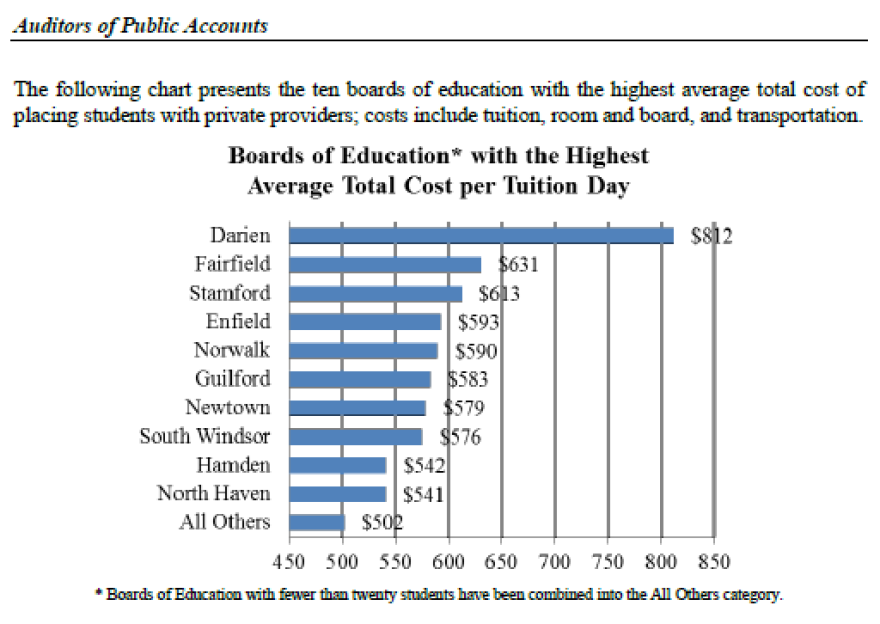In 2015, taxpayers spent over $230 million on private special education providers. But a state audit of six schools found that one of them wasn’t providing some of the services it was paid to provide.
Public districts across the state send thousands of kids to private special education schools. Many of these students have significant physical or intellectual disabilities. Some of them, however, have less-severe disabilities but are placed in private school for a variety of factors, such as the result of a legal settlement.
State auditors only looked at six of the 219 private facilities that are in Connecticut, and they found numerous problems with one of them. The school didn't have any records to show if services were provided to nearly 40 percent of its special education students.
"My concern is that the towns and the state are paying -- may be paying for services, or a menu of services that the students are not receiving," said John Gerogosian, the state auditor, whose office worked on the report. He said municipalities are also sometimes failing to see if these schools are doing their job.
"I think there is a general concern that there's not enough follow-up from towns and cities to making sure that their students are getting the services," he said.
Below is a portion of the report, however it's unclear if any of these schools were among the six audited by the state:

Auditors also tried to figure out if the school provided specific services that were listed on each child's Individualized Education Plan. They found that the school didn't have records of providing speech services and found that seven of eight students were not getting occupational therapy as often as required.
Gerogosian declined to identify the school in question since the results of this audit are preliminary, and the school itself may not be aware of these findings.
State auditors are expected to look at more schools in the coming months, Gerogosian said, and will provide state legislators with a more complete picture of what's going on by the summer.
It remains unclear how much taxpayer money was paid for services that were never delivered. The audit echoed similar findings from an audit in Darien in 2014 that found the district got state money for services it didn't provide.



